
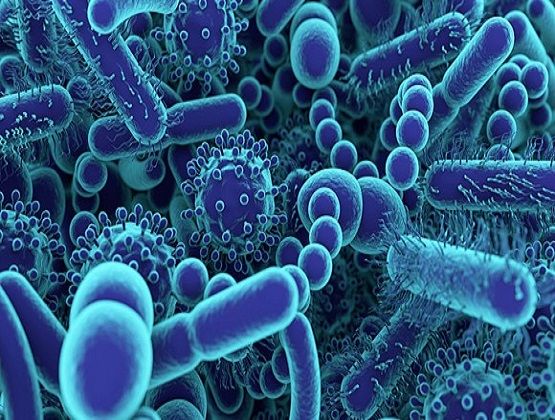
Infectious diseases, also known as transmissible or contagious conditions, are diseases caused by pathogenic microorganisms like as bacteria, contagions, parasites, or fungi. These diseases can spread, directly or indirectly, from person to person, from animals to humans, or through the environment. The transmission of infectious diseases can occur through various means, including respiratory droplets, direct contact with bodily fluids, contaminated food or water, and vector- borne transmission through organisms like mosquitoes.
Infectious diseases can manifest in a wide range of symptoms, from mild to severe, and can affect various organ systems in the body. Some common examples of infectious diseases include the flu, tuberculosis, HIV/ AIDS, malaria, and COVID- 19.
Related Tags:
Infectious Diseases Conferences | Infectious Diseases Conferences 2024 | Infectious Diseases Conference | Infectious Diseases Conference 2024 | Infectious Diseases Congress | Infectious Diseases Congress 2024 | Infectious Diseases Events | Infectious Diseases Events 2024 | Infectious Diseases Summit | Infectious Diseases in Tokyo, Japan| Infectious Diseases in October | Europe Infectious Diseases Meeting | Infectious Diseases Events 2024
Related Associations:
Venezuelan Society of Infectious Diseases | Australasian Society for Infectious Diseases | National Centre in HIV Epidemiology and Clinical Research | National Institute of Allergy and Infectious Diseases | Fred Hutch Vaccine and Infectious Disease Division

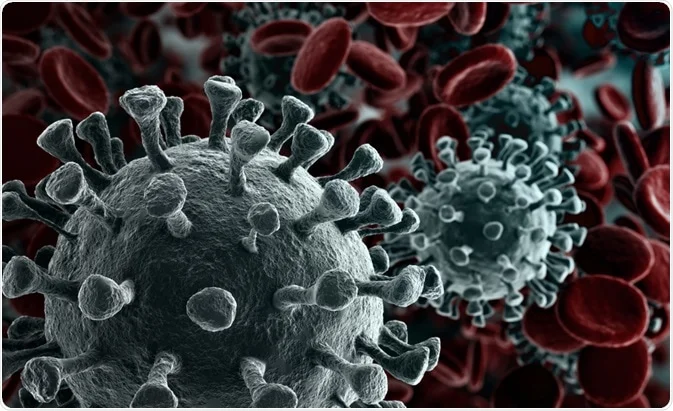
Coronavirus disease (COVID- 19) is an infectious disease caused by the SARS- CoV- 2 virus. Most people infected with the virus will experience mild to moderate respiratory illness and recover without requiring special treatment. COVID- 19 most often causes respiratory symptoms that can feel much like a cold, the flu, or pneumonia. COVID- 19 may attack more than your lungs and respiratory system. Other parts of your body may also be affected by the disease. Most people with COVID- 19 have mild symptoms, but some people become severely ill.
Related Tags:
Covid-19 Conferences | Covid-19 Conferences 2024 | Covid-19 Conference | Covid-19 Conference 2024 | Covid-19 Congress | Covid-19 Congress 2024 | Covid-19 Events | Covid-19 Events 2024 | Covid-19 Summit | Covid-19 in Tokyo, Japan| Covid-19 in October | Europe Covid-19 Meeting | Covid-19 Events 2024
Related Associations:
Association for Professionals in Infection Control and Epidemiology | HIV/AIDS Section of the APHA | Infectious Disease Society of America | International Society for Infectious Diseases | National Foundation for Infectious Diseases

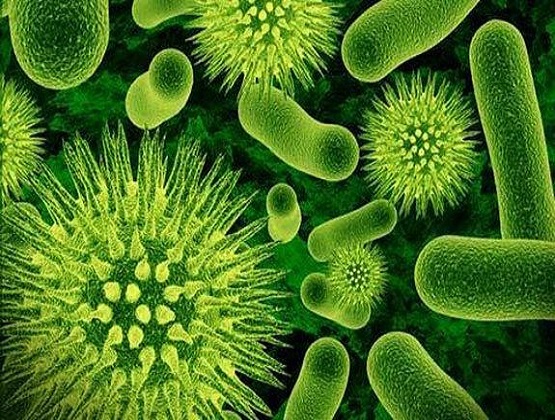
Bacterial infectious diseases are illnesses caused by bacteria, which are single- celled microorganisms. While many bacteria are harmless or even beneficial, certain strains can cause infections in humans. Septicaemia is a serious blood infection. It's when bacteria enter the bloodstream and cause blood poisoning.
Important and serious bacterial infections are
Related Tags:
Bacterial Infectious Diseases Conferences | Bacterial Infectious Diseases Conferences 2024 | Bacterial Infectious Diseases Conference | Bacterial Infectious Diseases Conference 2024 | Bacterial Infectious Diseases Congress | Bacterial Infectious Diseases Congress 2024 | Bacterial Infectious Diseases Events | Bacterial Infectious Diseases Events 2024 | Bacterial Infectious Diseases Summit | Bacterial Infectious Diseases in Tokyo, Japan| Bacterial Infectious Diseases in October | Europe Bacterial Infectious Diseases Meeting | Bacterial Infectious Diseases Events 2024
Related Associations:
(USA) Centers for Disease Control and Prevention | (USA) Center for Interdisciplinary Research on Antimicrobial Resistance | (USA) Certification Board of Infection Control and Epidemiology | (USA) Food and Drug Administration | (USA) Infectious Diseases Society of America | (USA) Infectious Disease Association of California

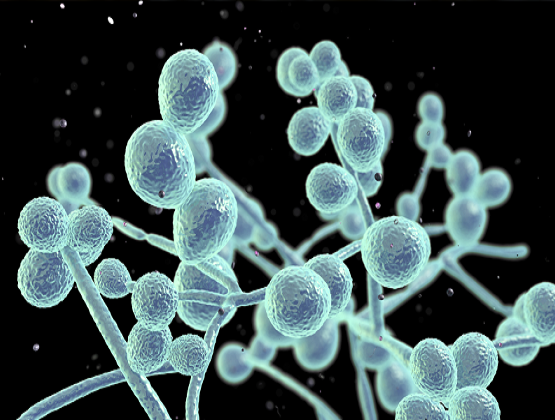
Fungal infectious diseases, also known as mycoses, are caused by various types of fungi. Fungi are eukaryotic microorganisms that can be either unicellular(yeasts) or multicellular(molds). While many fungi are harmless, some can cause infections in humans.
Most common fungal diseases are
Candida infections of the mouth, throat, and esophagus
Related Tags:
Fungal Infectious Diseases Conferences | Fungal Infectious Diseases Conferences 2024 | Fungal Infectious Diseases Conference | B Fungal Infectious Diseases Conference 2024 | Fungal Infectious Diseases Congress | Fungal Infectious Diseases Congress 2024 | Fungal Infectious Diseases Events | Fungal Infectious Diseases Events 2024 | Fungal Infectious Diseases Summit | Fungal Infectious Diseases in Tokyo, Japan| Fungal Infectious Diseases in October | Europe Fungal Infectious Diseases Meeting | Fungal Infectious Diseases Events 2024
Related Associations:
(USA) Infectious Diseases Society of New Jersey | (USA) The Infectious Diseases Society for Obstetrics and Gynecology | (USA) National Foundation For Infectious Diseases | (USA) The Armed Forces Infectious Diseases Society | (USA) The Florida Infectious Diseases Society | (USA) Texas Infectious Disease Society

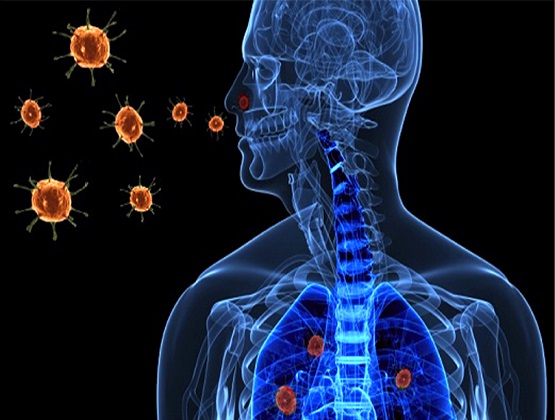
Viral infectious diseases are caused by viruses, microscopic infectious agents that can only replicate inside the cells of living organisms. Viral infections commonly cause respiratory and digestive illnesses, but viruses can also infect most other parts of your body.
Examples of Viral Infectious Diseases
Related Tags:
Viral Infectious Diseases Conferences | Viral Infectious Diseases Conferences 2024 | Viral Infectious Diseases Conference | Viral Infectious Diseases Conference 2024 | Viral Infectious Diseases Congress | Viral Infectious Diseases Congress 2024 | Viral Infectious Diseases Events | Viral Infectious Diseases Events 2024 | Viral Infectious Diseases Summit | Viral Infectious Diseases in Tokyo, Japan| Viral Infectious Diseases in October | Europe Viral Infectious Diseases Meeting | Viral Infectious Diseases Events 2024
Related Associations:
Senegal Institute Pasteur de Dakar | South African Medical Association | South African Institute for Medical Research | The SAHARA Network | (Tanzania) National Institute For Medical research | Alliance for the Prudent Use of Antibiotics | Argentine Society of Infectious Diseases

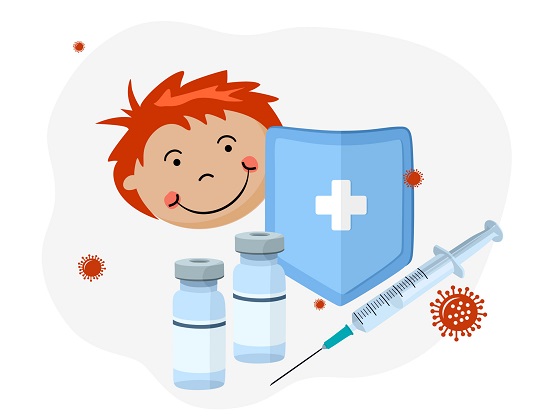
Paediatric contagious diseases refer to illnesses caused by microorganisms such as bacteria, viruses, fungi, and parasites that affect babies, children, and adolescents. These diseases can vary widely in their presentation, severity, and impact on child health.
Related Tags:
Paediatric Infectious Diseases Conferences | Paediatric Infectious Diseases Conferences 2024 | Paediatric Infectious Diseases Conference | Paediatric Infectious Diseases Conference 2024 | Paediatric Infectious Diseases Congress | Paediatric Infectious Diseases Congress 2024 | Paediatric Infectious Diseases Events | Paediatric Infectious Diseases Events 2024 | Paediatric Infectious Diseases Summit | Paediatric Infectious Diseases in Tokyo, Japan| Paediatric Infectious Diseases in October | Europe Paediatric Infectious Diseases Meeting | Paediatric Infectious Diseases Events 2024
Related Associations:
Pan American Society of Infectious Diseases | Peruvian Society of Infectious and Tropical Diseases | Sistema Europeo de Vigilancia de Resistencia Antimicrobiana | Uruguayan Society of Infectious Diseases | (USA) Academy for Infection Management | (USA) American College of Epidemiology

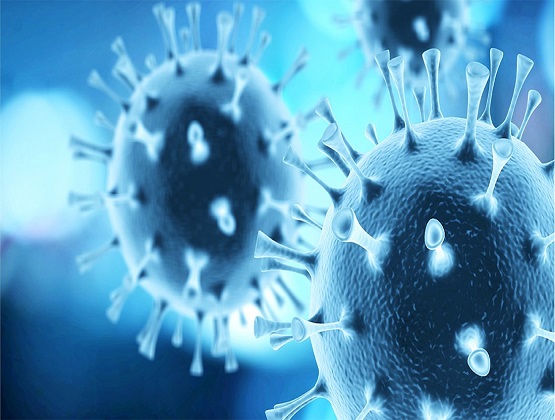
Nosocomial infections, also called health- care- associated or clinic- acquired infections, are a subset of catching conditions acquired in a health- care establishment. To be considered nosocomial, the infection can't be extant at confession; first, it must evolve at least 48 hours after confession.
Types of nosocomial infections include:
Related Tags:
Nosocomial Infections Conferences | Nosocomial Infections Conferences 2024 | Nosocomial Infections Conference | Nosocomial Infections Conference 2024 | Nosocomial Infections Congress | Nosocomial Infections Congress 2024 | Nosocomial Infections Events | Nosocomial Infections Events 2024 | Nosocomial Infections Summit | Nosocomial Infections in Tokyo, Japan| Nosocomial Infections in October | Europe Nosocomial Infections Meeting | Nosocomial Infections Events 2024
Related Associations:
Kyrgyz Center for Infectious Diseases | Lebanese Society of Infectious Diseases and Clinical Microbiology | Medical Microbiology and Infectious Diseases Society of Pakistan | Pediatric Infectious Disease Society of Thailand | Philippine Society for Microbiology and Infectious Diseases | (Russia) First Internet Center of Distance Education on Antimicrobial Chemotherapy in Russia | (Russia) Infectology and Epidemiology in Russia

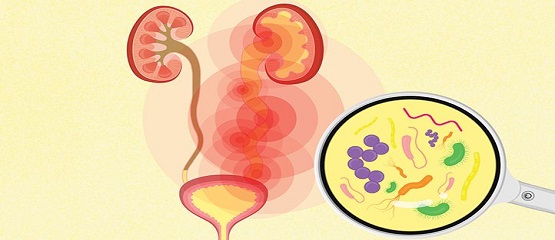
Urinary tract infections (UTIs) are bacterial infections that can occur anywhere in the urinary system, which includes the kidneys, bladder, ureters, and urethra. UTIs are common and can affect people of all ages, but they're more prevalent in women.
Related Tags:
Urinary Tract Infections Conferences | Urinary Tract Infections Conferences 2024 | Urinary Tract Infections Conference | Urinary Tract Infections Conference 2024 | Urinary Tract Infections Congress | Urinary Tract Infections Congress 2024 | Urinary Tract Infections Events | Urinary Tract Infections Events 2024 | Urinary Tract Infections Summit | Urinary Tract Infections in Tokyo, Japan| Urinary Tract Infections in October | Europe Urinary Tract Infections Meeting | Urinary Tract Infections Events 2024
Related Associations:
| (Russia) Interregional Association for Clinical Microbiology and Antimicrobial Chemotherapy | Saudi Society of Clinical Microbiology and Infectious Diseases | Türkiye Ekmud | Türkiye Klimik | Algerian Society of Infectiology | Federation of Infectious Diseases Societies of Southern Africa | (Morocco) Société Marocaine des Sciences Médicales | Nigerian Infectious Diseases Society

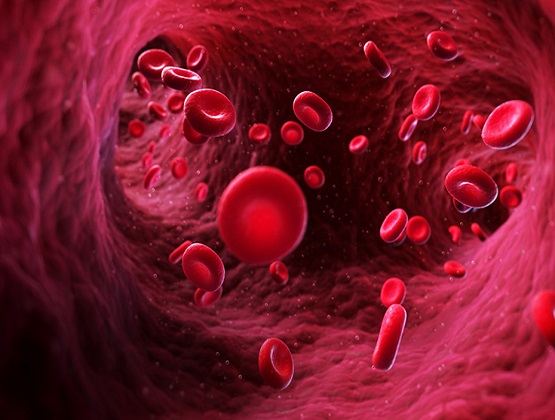
Blood infection is also known as sepsis. Sepsis is when inflammation throughout the body occurs.
Blood infectious diseases, often referred to as bloodborne infections, are caused by pathogens such as bacteria, viruses, and parasites that can be transmitted through blood or other bodily fluids. These infections can have serious health implications and may be transmitted through various routes, including contaminated blood transfusions, needlestick injuries.
Related Tags:
Blood Infectious Diseases Conferences | Blood Infectious Diseases Conferences 2024 | Blood Infectious Diseases Conference | Blood Infectious Diseases Conference 2024 | Blood Infectious Diseases Congress | Blood Infectious Diseases Congress 2024 | Blood Infectious Diseases Events | Blood Infectious Diseases Events 2024 | Blood Infectious Diseases Summit | Blood Infectious Diseases in Tokyo, Japan| Blood Infectious Diseases in October | Europe Blood Infectious Diseases Meeting | Blood Infectious Diseases Events 2024
Related Associations:
| Swedish Society of Infectious Diseases | Swiss Society for Infectious Diseases | Asian Society for Pediatric Infectious Diseases | (India) Clinical Infectious Diseases Society | Infectious Diseases Association of Thailand | Iranian Society of Infectious Diseases and Tropical Medicine | (Japan) National Institute of Infectious Diseases | Korean Society of Infectious Diseases

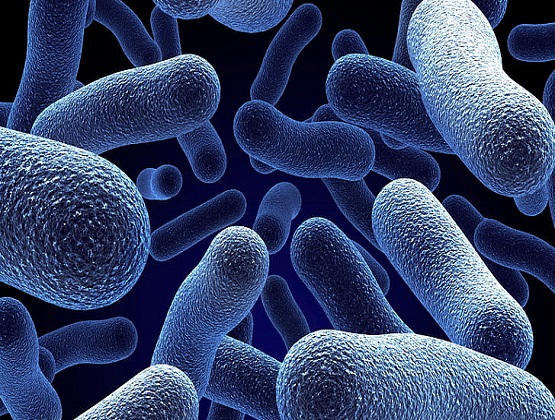
Microbiology:
Microbiology is the branch of biology that focuses on the study of microorganisms, which are microscopic, single- celled organisms or entities that are too small to be seen with the naked eye. These microorganisms include bacteria, viruses, fungi, protozoa, and algae. Microbiologists investigate the characteristics, behaviour, genetics, and roles of microorganisms in various environments, including their interactions with other organisms. Microbiology has broad applications in medicine, agriculture, environmental science, and biotechnology. Understanding microbiology is crucial for diagnosing and treating infectious diseases, developing vaccines, and exploring microbial contributions to global ecosystems.
Virology:
Virology is a specialized branch of microbiology that specifically focuses on the study of viruses. Viruses are unique entities that exist at the boundary between living and non-living things. They consist of genetic material (either DNA or RNA) enclosed in a protein coat called a capsid, and some have an outer envelope. Unlike bacteria or fungi, viruses cannot carry out metabolic processes or reproduce on their own; instead, they rely on host cells to replicate. Virologists investigate the structure, classification, replication mechanisms, and pathogenicity of viruses. The field is essential for understanding viral diseases, developing antiviral therapies, and designing vaccines.
Related Tags:
Microbiology and virology Conferences | Microbiology and virology Conferences 2024 | Microbiology and virology Conference | Microbiology and virology Conference 2024 | Microbiology and virology Congress | Microbiology and virology Congress 2024 | Microbiology and virology Events | Microbiology and virology Events 2024 | Microbiology and virology Summit | Microbiology and virology in Tokyo, Japan| Microbiology and virology in October | Europe Microbiology and virology Meeting | Microbiology and virology Events 2024
Related Associations:
| Kyrgyz Center for Infectious Diseases | Lebanese Society of Infectious Diseases and Clinical Microbiology | Medical Microbiology and Infectious Diseases Society of Pakistan | Pediatric Infectious Disease Society of Thailand | Philippine Society for Microbiology and Infectious Diseases | (Russia) First Internet Center of Distance Education on Antimicrobial Chemotherapy in Russia | (Russia) Infectology and Epidemiology in Russia

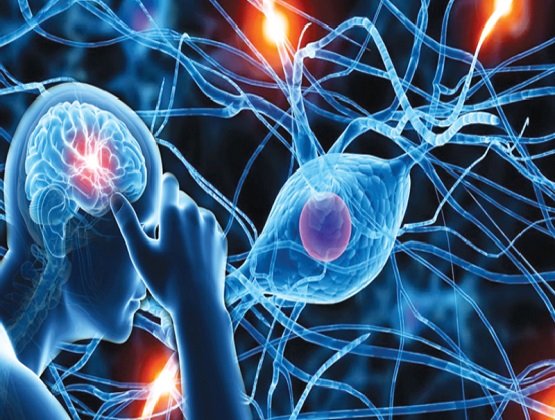
Neuroinfectious diseases are infections that affect the nervous system, including the brain, spinal cord, and peripheral jitters. These diseases can be caused by a variety of infectious agents, including bacteria, viruses, fungi, and parasites. Infections of the nervous system can lead to a range of neurological symptoms and complications.
· Creutzfeldt-Jakob disease
· Herpes encephalitis
· Meningitis
· Neurocysticercosis
· Progressive multifocal leukoencephalopathy
· Toxoplasmosis
· Tropical spastic paraparesis
Related Tags:
| Neuro Infectious Diseases Conferences | Neuro Infectious Diseases Conferences 2024 | Neuro Infectious Diseases Conference | Neuro Infectious Diseases Conference 2024 | Neuro Infectious Diseases Congress | Neuro Infectious Diseases Congress 2024 | Neuro Infectious Diseases Events | Neuro Infectious Diseases Events 2024 | Neuro Infectious Diseases Summit | Neuro Infectious Diseases in Tokyo, Japan| Neuro Infectious Diseases in October | EuropeNeuro Infectious Diseases Meeting | Neuro Infectious Diseases Events 2024
Related Associations:
| Italian Society of Infectious and Tropical Diseases | Lithuanian Society for Infectious Diseases | Netherlands Society for Internal Medicine (Infectious Diseases Section) | North Macedonian Society for Infectious Diseases | Norwegian Association for Infectious Diseases | Portuguese Society of Infeccious Diseases and Clinical Microbiology

Sexually Transmitted Diseases, also known as Sexually Transmitted Infections are infections that are primarily spread through sexual contact. This includes vaginal, anal, or oral sex with an infected partner. STDs can be caused by bacteria, viruses, parasites, or fungi, and they affect people of all ages, genders, and sexual orientations.
Related Tags:
Sexually Transmitted Diseases Conferences | Sexually Transmitted Diseases Conferences 2024 | Sexually Transmitted Diseases Conference | Sexually Transmitted Diseases Conference 2024 | Sexually Transmitted Diseases Congress | Sexually Transmitted Diseases Congress 2024 | Sexually Transmitted Diseases Events | Sexually Transmitted Diseases Events 2024 | Sexually Transmitted Diseases Summit | Sexually Transmitted Diseases in Tokyo, Japan| Sexually Transmitted Diseases in October | Europe Sexually Transmitted Diseases Meeting | Sexually Transmitted Diseases Events 2024
Related Associations:
| Hellenic Society for Chemotherapy | Hungarian Society for Infectious Diseases and Clinical Microbiology | Icelandic Infectious Diseases Society | Infectious Disease Society of Ireland | Italian Society of Virology | Infectious Disease Society of Finland


Veterinary conditions are illnesses that affect animals, both domesticated and wild. These diseases can have significant implications for animal health, welfare, and, in some cases, public health. Veterinary medicine plays a crucial role in the diagnosis, treatment, prevention, and control of these diseases.
Related Tags:
Veterinary infectious diseases Conferences | Veterinary infectious diseases Conferences 2024 | Veterinary infectious diseases Conference | Veterinary infectious diseases Conference 2024 | Veterinary infectious diseases Congress | Veterinary infectious diseases Congress 2024 | Veterinary infectious diseases Events | Veterinary infectious diseases Events 2024 | Veterinary infectious diseases Summit | Veterinary infectious diseases in Tokyo, Japan| Veterinary infectious diseases in October | Europe Veterinary infectious diseases Meeting | Veterinary infectious diseases Events 2024
Related Associations:
| Croatian Society of Infectious Diseases | Czech Society for Infectious Diseases | Danish Infectious Diseases Society | European Society for Paediatric Infectious Diseases | French Infectious Diseases Society | German Society for Infectious Diseases | German Association for Paediatric Infectology

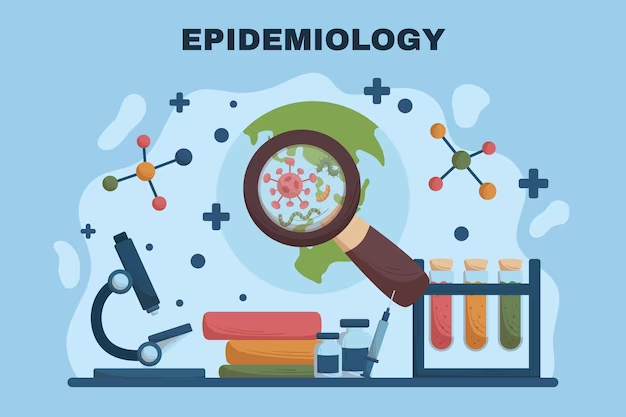
Epidemiology is the study of the distribution and determinants of health- related events, conditions, and behaviors in populations, and the application of this knowledge to control health problems. It's a key discipline within public health that focuses on understanding patterns of diseases and health outcomes to inform public health policies and interventions.
Related Tags:
Epidemiology Conferences | Epidemiology Conferences 2024 | Epidemiology Conference | Epidemiology Conference 2024 | Epidemiology Congress | Epidemiology Congress 2024 | Epidemiology Events | Epidemiology Events 2024 | Epidemiology Summit | Epidemiology in Tokyo, Japan| Epidemiology in October | Europe Epidemiology Meeting | Epidemiology Events 2024
Related Associations:
| Brazilian Infectology Society | Canada Association of Medical Microbiology and Infectious Disease | Chilean Society of Infectious Diseases | Colombian Association of Infectious Diseases | Latin American Society of Pediatric Infectious Diseases | Mexican Association of Infectious Diseases and Clinical Microbiology

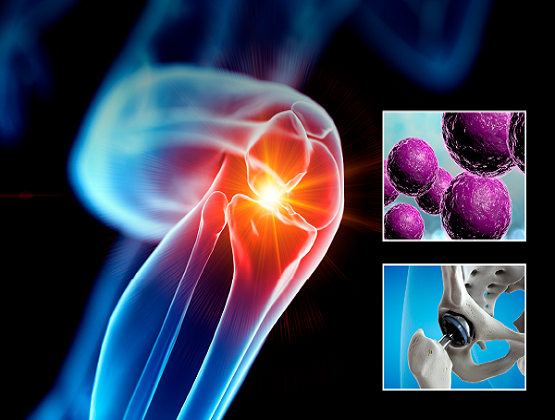
Orthopaedic infections refer to infections that involve the musculoskeletal system, including bones, joints, muscles, tendons, and surrounding soft tissues. These infections can result from the introduction of bacteria, viruses, fungi, or other microorganisms into the musculoskeletal tissues, leading to inflammation, pain, and potential damage to the affected structures. Orthopaedic infections can occur through various routes, such as trauma, surgery, or the spread of infections from other parts of the body.
Types of Orthopaedic Infections:
Related Tags:
Orthopaedics Infections Conferences | Orthopaedics Infections Conferences 2024 | Orthopaedics Infections Conference | Orthopaedics Infections Conference 2024 | Orthopaedics Infections Congress | Orthopaedics Infections Congress 2024 | Orthopaedics Infections Events | Orthopaedics Infections Events 2024 | Orthopaedics Infections Summit | Orthopaedics Infections in Tokyo, Japan| Orthopaedics Infections in October | Europe Orthopaedics Infections Meeting | Orthopaedics Infections Events 2024
Related Associations:
| WhizzKids United | Youth of JAZAS | YRG Care | European Society of Clinical Microbiology and Infectious Diseases | European Centre for Disease Prevention and Control | International Society for Infectious Diseases (ISID) | Pediatric Infectious Diseases Society | Society of Infectious Diseases Pharmacists | World Health Organization (WHO) | Albanian Society of Infectious Disease | Association of Infectologists in Bosnia Herzegovina

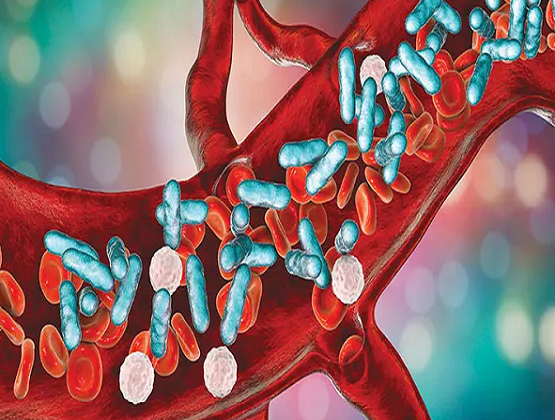
Sepsis, commonly referred to as septicemia, is a potentially life- threatening medical condition characterized by a systemic inflammatory response to infection. It occurs when the body's response to an infection becomes dysregulated, leading to widespread inflammation that can affect multiple organ systems. Sepsis can arise from infections in various parts of the body, including the lungs, abdomen, urinary tract, or skin.
Related Tags:
Sepsis/Septicemia Conferences | Sepsis/Septicemia Conferences 2024 | Sepsis/Septicemia Conference | Sepsis/Septicemia Conference 2024 | Sepsis/Septicemia Congress | Sepsis/Septicemia Congress 2024 | Sepsis/Septicemia Events | Sepsis/Septicemia Events 2024 | Sepsis/Septicemia Summit | Sepsis/Septicemia in Tokyo, Japan| Sepsis/Septicemia in October | Europe Sepsis/Septicemia Meeting | Sepsis/Septicemia Events 2024
Related Associations:
| (British) Advisory Committee on Dangerous Pathogens | ARMed Antibiotic resistance, surveillance, and Control in the Mediterranean Region | Austrian Society of Infectious Diseases | Belgium Society of Infectious Diseases and Clinical Microbiology | British Society for Antimicrobial Chemotherapy | British Infection Association | Bulgarian Society of Infectious Diseases

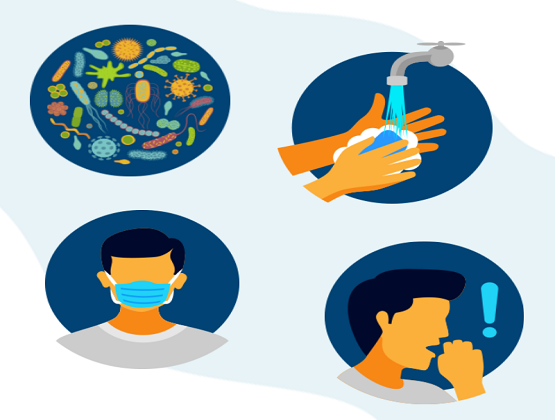
Infectious Diseases can be prevented, controlled and cured by following methods
Related Tags:
Infectious Diseases Prevention Conferences | Infectious Diseases Prevention Conferences 2024 | Infectious Diseases Prevention Conference | Infectious Diseases Prevention Conference 2024 | Infectious Diseases Prevention Congress | Infectious Diseases Prevention Congress 2024 | Infectious Diseases Prevention Events | Infectious Diseases Prevention Events 2024 | Infectious Diseases Prevention Summit | Infectious Diseases Prevention in Tokyo, Japan| Infectious Diseases Prevention in October | Europe Infectious Diseases Prevention Meeting | Infectious Diseases Prevention Events 2024
Related Associations:
| Mindset Network | Mothers2mothers | National AIDS Control Organisation | National Centre for HIV/AIDS Dermatology and STDs, Cambodia | New Zealand AIDS Memorial Quilt | Nkosi's Haven | PHACE West | Project SIDA | Proyecto ContraSIDA por Vida | PT Foundation | Sampada Gramin Mahila Sanstha | Sankalp Rehabilitation Trust

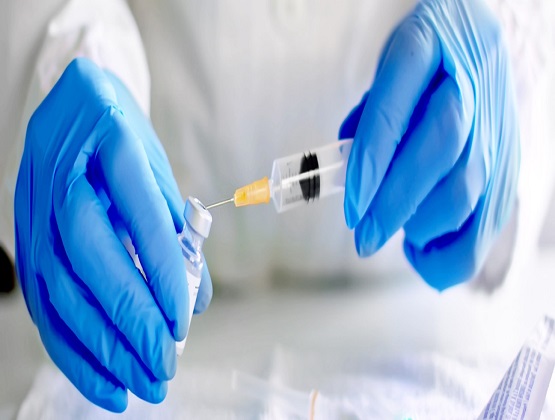
Vaccines:
Vaccines are biological preparations that stimulate the immune system to recognize and mount a defense against specific pathogens, such as bacteria or viruses. They typically consist of weakened or inactivated forms of the infectious agent, fragments of the pathogen, or synthetic substances that mimic the pathogen. The purpose of vaccines is to prime the immune system, training it to recognize and remember the pathogen so that it can respond rapidly and effectively if the individual is later exposed to the actual infectious agent.
Vaccination:
Vaccination, also known as immunization, is the process of administering a vaccine to an individual to induce immunity against a particular disease. Vaccination involves the introduction of the vaccine into the body, triggering an immune response. This immune response results in the production of antibodies and the development of immunological memory, providing protection against future infections by the targeted pathogen. Vaccination is a key public health strategy that has been instrumental in reducing the incidence of various infectious diseases and preventing their spread within communities. It's often administered through injections, but some vaccines can be given orally or intranasally. Vaccination programs are essential factors of global efforts to promote public health and prevent the spread of vaccine- preventable diseases.
Related Tags:
Vaccine Conferences | Vaccine Conferences 2024 | Vaccine Conference | Vaccine Conference 2024 | Vaccine Congress | Vaccine Congress 2024 | Vaccine Events | Vaccine Events 2024 | Vaccine Summit | Vaccine in Tokyo, Japan| Vaccine in October | Europe Vaccine Meeting | Vaccine Events 2024
Related Associations:
| Scottish AIDS Monitor | Sidaction | Siempre Unidos | Sol En Si | St. Xavier's Social Service Society | Stigma Action Network | Swedish Workplace HIV/AIDS Programme | Think Positive | Traditional and Modern Health Practitioners Together Against AIDS | Unite for Children, Unite Against AIDS

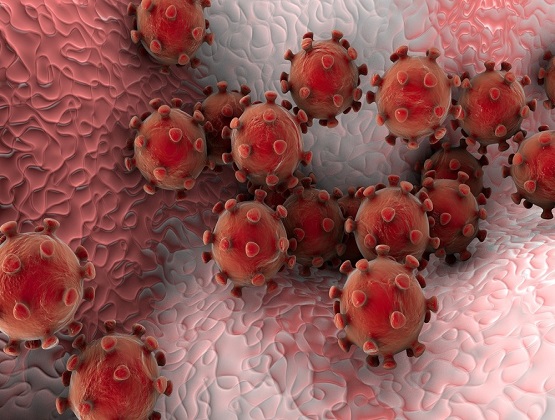
Rare infectious diseases, also known as orphan diseases or neglected tropical diseases, are infectious illnesses that occur infrequently within a population or geographic area. These diseases are characterized by their low prevalence, often affecting a small number of people compared to more common infectious diseases. Despite their rarity, these diseases can have significant health impacts, and they may present unique challenges in terms of diagnosis, treatment, and research
Examples of Rare Diseases
Related Tags:
Rare Infectious Diseases Conferences | Rare Infectious Diseases Conferences 2024 | Rare Infectious Diseases Conference | Rare Infectious Diseases Conference 2024 | Rare Infectious Diseases Congress | Rare Infectious Diseases Congress 2024 | Rare Infectious Diseases Events | Rare Infectious Diseases Events 2024 | Rare Infectious Diseases Summit | Rare Infectious Diseases in Tokyo, Japan| Rare Infectious Diseases in October | Europe Rare Infectious Diseases Meeting | Rare Infectious Diseases Events 2024
Related Associations:
Global Infectious Disease Epidemiology Network | Global Outbreak Alert and Response Network | Global Public Health Intelligence Network | Hektoen Institute for Medical Research | Infection Control Society of Pakistan | Infectious Disease Pharmacokinetics Laboratory |

Surgical site infections (SSIs) are infections that occur at or near a surgical incision or operative site following a surgical procedure. These infections can involve the skin, underlying tissues, and sometimes deeper structures, such as organs or implanted devices. SSIs pose a risk to patients undergoing surgical interventions and can lead to complications, prolonged hospital stays, and additional medical treatments.
Surgical Site Infections are three types
Related Tags:
Surgical Site Infections Conferences | Surgical Site Infections Conferences 2024 | Surgical Site Infections Conference | Surgical Site Infections Conference 2024 | Surgical Site Infections Congress | Surgical Site Infections Congress 2024 | Surgical Site Infections Events | Surgical Site Infections Events 2024 | Surgical Site Infections Summit | Surgical Site Infections in Tokyo, Japan| Surgical Site Infections in October | Europe Surgical Site Infections Meeting | Surgical Site Infections Events 2024
Related Associations:
| Association of Medical Microbiology and Infectious Disease Canada | Bamrasnaradura Infectious Diseases Institute | Catherine-de-Barnes Isolation Hospital | Coalition for Epidemic Preparedness Innovations | Connecting Organizations for Regional Disease Surveillance | Galveston National Laboratory | Gamaleya Research Institute of Epidemiology and Microbiology


HIV Infection:
Human Immunodeficiency Virus (HIV) is a virus that attacks the immune system, specifically the CD4 cells (T cells), which play a crucial role in the body's immune response. However, HIV can lead to the disease Acquired Immunodeficiency Syndrome (AIDS), If left untreated. HIV is primarily transmitted through unprotected sexual intercourse, sharing of needles among intravenous drug users, and from an infected mother to her child during childbirth or breastfeeding.
Related Tags:
HIV Conferences | HIV Conferences 2024 | HIV Conference | HIV Conference 2024 | HIV Congress | HIV Congress 2024 | HIV Events | HIV Events 2024 | HIV Summit | HIV in Tokyo, Japan| HIV in October | HIV Meeting | HIV Events 2024
Related Associations:
| National Emerging Infectious Diseases Laboratories | National Foundation for Infectious Diseases | National Institute of Virology (Pakistan) | ProMED-mail | Research Institute for Tropical Medicine | Society of Infectious Diseases Pharmacists | South Texas Center for Emerging Infectious Diseases

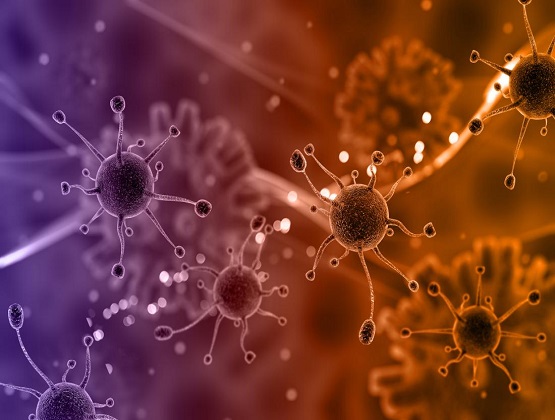
Viruses
Viruses are microscopic infectious agents that are smaller than bacteria and consist of genetic material (either DNA or RNA) enclosed in a protein coat called a capsid. Viruses lack the cellular machinery for metabolism and reproduction and depend on host cells to replicate. They infect various organisms, including animals, plants, fungi, bacteria(bacteriophages), and archaea. Viral infections can cause a range of diseases in their hosts, from mild illnesses like the common cold to more severe conditions such as influenza, HIV/ AIDS, and COVID- 19
Cancer
Cancer is a group of diseases characterized by the uncontrolled division and growth of abnormal cells that can invade and damage surrounding tissues. It can occur in virtually any part of the body. Cancer cells may form a mass or lump known as a tumor, and they can spread to other parts of the body through the bloodstream or lymphatic system. Cancer is caused by genetic mutations that accumulate over time, and these mutations may be triggered by various factors, including exposure to carcinogens, genetic predisposition, and certain infections. The development of cancer involves complex interactions between genetic, environmental, and lifestyle factors.
Related Tags:
Viruses and Cancer Conferences | Viruses and Cancer Conferences 2024 | Viruses and Cancer Conference | Viruses and Cancer Conference 2024 | Viruses and Cancer Congress | Viruses and Cancer Congress 2024 | Viruses and Cancer Events | Viruses and Cancer Events 2024 | Viruses and Cancer Summit | Viruses and Cancer in Tokyo, Japan| Viruses and Cancer in October | Europe Viruses and Cancer Meeting | Viruses and Cancer Events 2024
Related Associations:
| World Society for Virology | ACET (AIDS charity) | Africa's Children-Africa's Future | Aidchild | AIDS Vancouver | AIDS.Center | Aidsmap | Australian Federation of AIDS Organisations | Avahan | Infectious Diseases Institute | Infectious Diseases Society of America |


Disinfection
Disinfection is a process that involves the elimination or significant reduction of microorganisms on surfaces and inanimate objects to a level where they're no longer harmful. The primary goal of disinfection is to control the spread of infectious agents and reduce the risk of infection. Disinfectants are chemical or physical agents that are applied to surfaces, instruments, or other objects to destroy or inhibit the growth of microorganisms. Disinfection is commonly used in healthcare settings, laboratories, and households to maintain a hygienic environment. Different disinfectants have varying effectiveness against different types of microorganisms.
Sterilization
Sterilization is a more comprehensive process that aims to completely eliminate all forms of microbial life, including bacteria, viruses, fungi, and spores. The goal of sterilization is to achieve a sterile condition, ensuring the complete destruction of all viable microorganisms and their spores. Sterilization is crucial in settings where absolute sterility is required, such as in surgical procedures, the manufacturing of pharmaceuticals, and laboratory work. Common sterilization methods include heat(autoclaving), chemical sterilants, radiation (gamma or electron beam irradiation), and filtration.
Related Tags:
Disinfection and Sterilization Conferences | Disinfection and Sterilization Conferences 2024 | Disinfection and Sterilization Conference | Disinfection and Sterilization Conference 2024 | Disinfection and Sterilization Congress | Disinfection and Sterilization Congress 2024 | Disinfection and Sterilization Events | Disinfection and Sterilization Events 2024 | Disinfection and Sterilization Summit | Disinfection and Sterilization in Tokyo, Japan| Disinfection and Sterilization in October | Europe Disinfection and Sterilization Meeting | Disinfection and Sterilization Events 2024
Related Associations:
Strategic Advisory Group of Experts | Wuhan Institute of Virology | HIV/AIDS prevention organizations | HIV/AIDS research organisations | HIV/AIDS organisations in the United Kingdom | HIV/AIDS organizations in the United States | American Society for Virology | European Society for Clinical Virology


Plant Diseases
Plant diseases refer to abnormal conditions or malfunctions that affect the normal functioning of plants. These conditions can result from various factors, including infectious agents such as fungi, bacteria, viruses, nematodes, and parasitic plants. Additionally,non-infectious factors like environmental stress, nutrient deficiencies, and genetic abnormalities can contribute to plant diseases. Plant pathogens can cause damage to crops, reduce yields, and impact the overall health of plant populations. Effective management of plant diseases is crucial for sustainable agriculture and maintaining plant biodiversity.
Infection Control in Plants
Infection control in plants involves strategies and practices aimed at preventing, managing, and mitigating the impact of infectious agents on plant health.
Related Tags:
Plant Infectious Diseases Conferences | Plant Infectious Diseases Conferences 2024 | Plant Infectious Diseases Conference | Plant Infectious Diseases Conference 2024 | Plant Infectious Diseases Congress | Plant Infectious Diseases Congress 2024 | Plant Infectious Diseases Events | Plant Infectious Diseases Events 2024 | Plant Infectious Diseases Summit | Plant Infectious Diseases in Tokyo, Japan| Plant Infectious Diseases in October | Europe Plant Infectious Diseases Meeting | Plant Infectious Diseases Events 2024
Related Associations:
| European Society of Clinical Microbiology and Infectious Diseases | International Committee on Taxonomy of Viruses | International Society for NeuroVirology | Baan Gerda | Bobby Goldsmith Foundation | Boikarabelo | Botswana–Harvard AIDS Institute Partnership | Canadian AIDS Society |